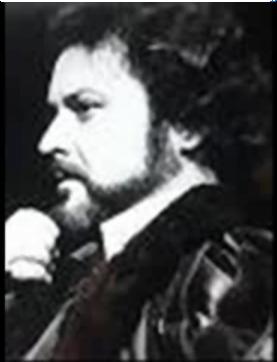Savastano's voice was discovered by the Italian pop singer Teddy Reno, who also paid for his
voice lessons. Savastano made his debut at La Scala on 2 January 1976 as Malcolm (cf. the above recording); the next month, he
sang his first main part as Duca at the Teatro La Fenice in Venice.
The mix of comprimario and leading roles would be characteristic of his entire career. At La Scala, he was regularly employed,
but almost exclusively in small parts; but it was not only at small theaters where he sang main parts: his debut at the Paris
Opéra (1983) was as Rodolfo, he was Leicester in Rossini's Elisabetta, regina d'Inghilterra at the Regio in Torino
in 1985, he sang Elvino, Idreno, Amenofi, Nemorino, Edgardo, Gabriele Adorno, Carlo (in I masnadieri), Macduff. On the other
hand, he also sang comprimario parts at theaters other than La Scala (the Young Gypsy in Aleko in Torino in 1980, Nicias in Rome
in 1978, Tebaldo in I Capuleti e i Montecchi in Dallas in 1978, to a devastating review in the February edition of Texas
Monthly, as well as in Washington in 1979).
He sang a lot of sacred music like Stabat mater, Petite messe solennelle, Verdi's Requiem, Dvořák's Requiem,
Schubert's Mass no. 6, Beethoven's Symphony no. 9, Franck's Béatitudes... regularly under famous conductors like
Abbado, Prêtre, Muti or Schippers.
He produced a very beautiful tone, and had a high voice, naturally – but technically, the high notes were his weak point,
and often sounded uneasy and laboured.
Early on, he also started to teach voice; one of his pupils was his brother Romualdo, a baritone, who founded a school of singing
in Rome after Antonio's premature death (from a heart attack), where he taught the method established by Antonio.
Reference 1; reference 2: Kutsch & Riemens
